How to Do WhatsApp Marketing
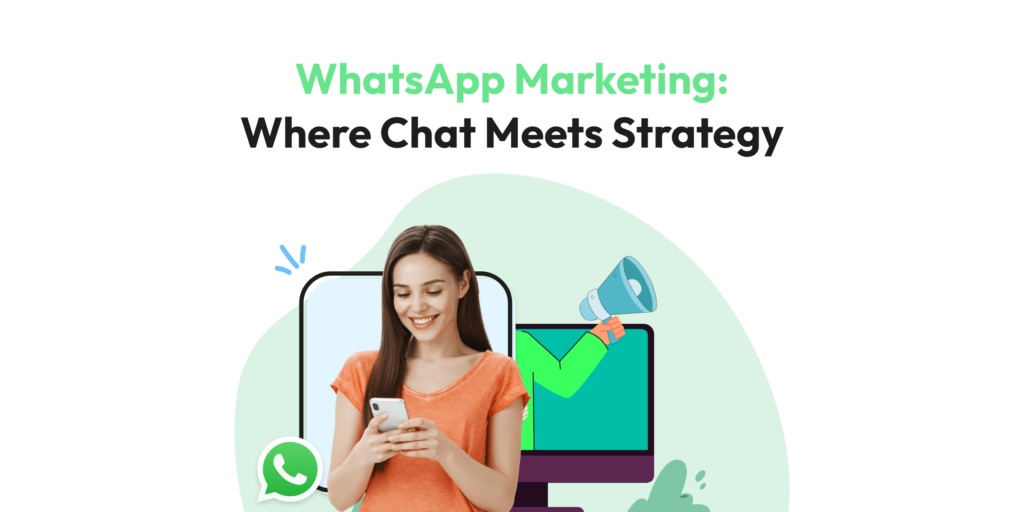
WhatsApp isn’t just a messaging app anymore––it’s a gateway to direct, meaningful connections with billions worldwide. With nearly 3 billion active users monthly, it’s reshaping how businesses engage and grow. Imagine reaching your audience instantly, where every message becomes a potential sale or delights a customer.
Today, we uncover how mastering WhatsApp marketing can amplify your reach, drive conversions, and redefine customer engagement in ways that resonate and deliver results.
Table of Contents
9 Essential Pillars of an Effective WhatsApp Marketing Strategy
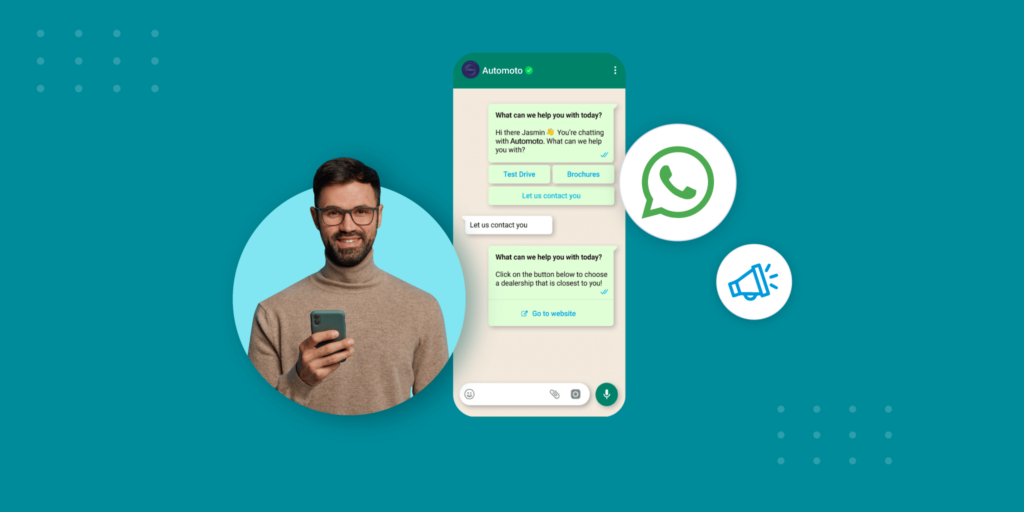
To execute a successful WhatsApp marketing strategy, focus on three essential pillars: strategic planning, intuitive tools, and diligent execution of best practices.
Let’s explore each of these pillars to optimize your marketing efforts effectively.
1. Personalized Messaging
Tailor messages based on customer data such as purchase history, preferences, and interaction patterns. Use personalized greetings, relevant product recommendations, and exclusive offers to enhance engagement. This approach makes customers feel valued, appreciated, and important, increasing the likelihood of conversions. You would need to upload customer data manually to your WhatsApp marketing tool or integrate it with any third-party tool that collects such information.
For example, a clothing retailer can send personalized recommendations based on a customer’s past purchases, like suggesting matching accessories for a recent dress purchase.
2. Segmented Broadcasts
Create segmented lists based on demographics, interests, or purchasing behavior. Send targeted messages that are specific to each segment’s needs or preferences.
For example, tailor messages for new customers with introductory offers while updating loyal customers with exclusive rewards. Segmented broadcasts prevent message fatigue and improve relevance, boosting open rates and response rates.
3. Automated Efficiency
Implement WhatsApp chatbots to automate routine inquiries, provide instant responses, and guide customers through common processes like order tracking or appointment scheduling. Use AI-driven bots to simulate human-like conversations, offering a seamless customer service experience 24/7. Automation not only saves time but also ensures reliability in customer interactions.
For example, a travel agency can use a chatbot to instantly provide flight details, hotel options, and visa requirements based on customer queries.
4. Compelling Content
Develop content that informs, entertains, or solves customer problems.
For example, a tech company can share how-to guides on setting up their products, troubleshooting tips through videos, and updates on upcoming product launches. Utilize multimedia such as videos, infographics, and interactive elements to enrich the messaging experience and encourage interaction and sharing among users.
5. Interactive Campaigns
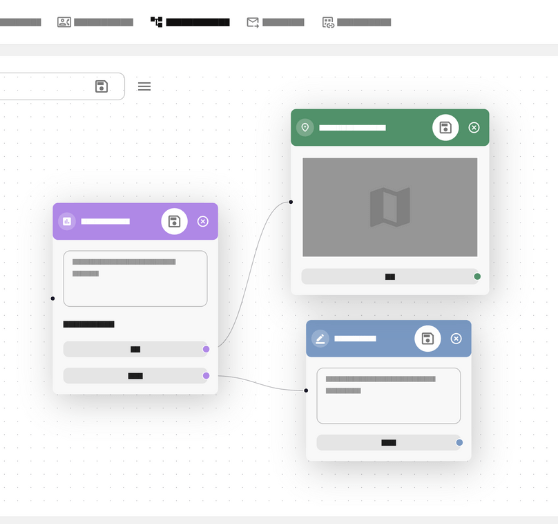
Engage customers through interactive content such as polls, surveys, contests, and quizzes. Use these campaigns to gather feedback, preferences, and insights directly from your audience using WhatsApp flows.
For instance, a food delivery service can run a quiz to determine customers’ favorite cuisines or preferences for new menu items. This not only encourages participation but also gathers valuable feedback and insights directly from the audience.
6. Responsive Support
Utilize WhatsApp as a primary channel for customer support, offering timely responses to inquiries, troubleshooting issues, and providing personalized assistance. Use templates for common queries and quick replies to streamline responses while maintaining a human touch. Resolve complaints swiftly and effectively to build trust and enhance customer satisfaction.
An example is a telecommunications company using WhatsApp to quickly resolve network issues, provide billing information, and assist with service upgrades.
7. CRM Integration
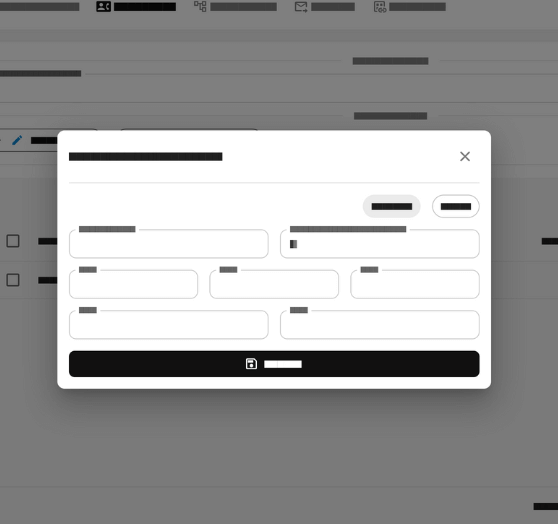
Integrate WhatsApp with your CRM (Customer Relationship Management) system to centralize customer data, track interactions, and personalize communications. Use insights from CRM analytics to segment audiences, send targeted messages, and measure campaign effectiveness. This integration unifies customer interactions across all touchpoints, enabling personalized and data-driven marketing strategies.
For instance, an e-commerce platform can integrate WhatsApp with its CRM to send personalized order confirmations, delivery updates, and product recommendations based on past purchases.
8. Cross-Channel Synergy
Integrate WhatsApp marketing efforts with other digital channels such as email marketing, social media, and website campaigns. Create cohesive cross-channel campaigns that reinforce messaging, drive conversions through the sales funnel. Use consistent branding, messaging, and CTAs across channels to enhance brand visibility and reinforce customer engagement.
An example is a fashion brand launching a new collection with coordinated WhatsApp messages, Instagram posts showcasing the products, and email newsletters offering exclusive previews to subscribers.
9. Analytics Insights
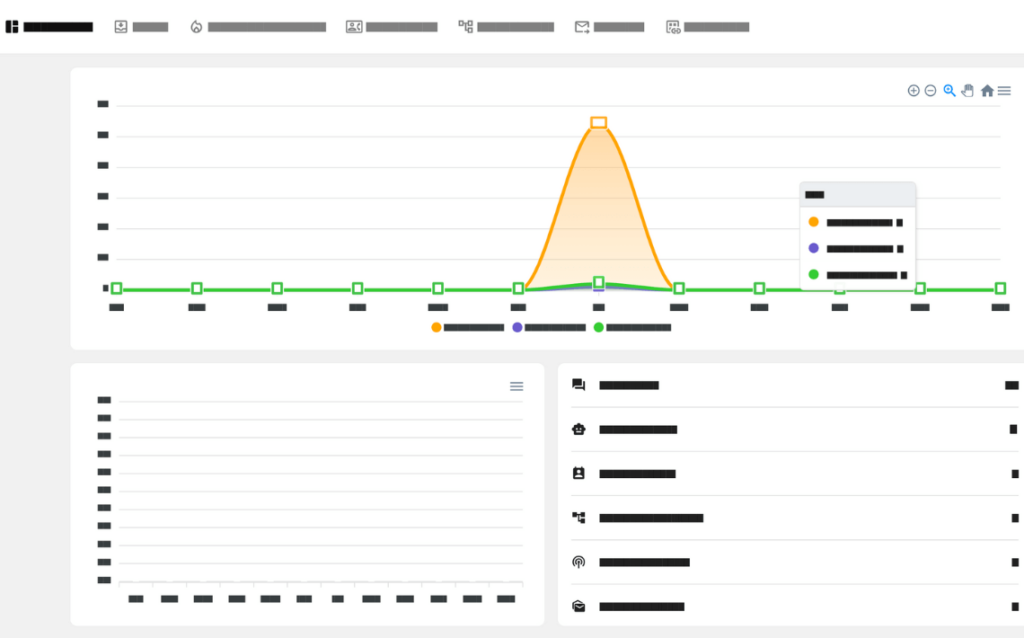
Monitor key performance indicators (KPIs) such as message open rates, click-through rates, conversion rates, and customer engagement metrics. Gain actionable insights into campaign performance, audience behavior, and trends with customer analytics. Continuously optimize strategies based on data to improve targeting, messaging effectiveness, and overall campaign ROI.
For instance, a software company can track how many users click on their WhatsApp messages promoting a free trial, measure the conversion rate from trial sign-ups to paid subscriptions, and analyze customer feedback received via WhatsApp.
The key to executing effective strategies lies in using the right tools, which embed consistency and excellence into your marketing culture while enhancing operational efficiency and providing valuable metrics.
Now, let’s explore how integrating an all-in-one WhatsApp automation tool can further elevate these efforts.

How to Execute Your WhatsApp Marketing Strategy with Send.icu
Awareness Stage: Getting the Attention of Potential Customers
The goal in the awareness stage is to grab people’s attention. One great way to do this is by launching ‘Click-to-WhatsApp ads’ with Send.icu. These ads are designed to kick-start direct engagement with potential customers through WhatsApp.
You can run these ads on platforms like Instagram and Facebook. When users click on these ads, they are instantly directed to a WhatsApp chat with your business, making it super easy for them to interact with you.
Another cool trick is to create custom WhatsApp links and share them across social media, emails, and your website. These links allow customers to start chats with you effortlessly, so they can reach out to you whenever and wherever they come across your brand.
Interest Stage: Engaging Potential Customers
Utilize WhatsApp broadcasts to send out updates, promotions, and exclusive offers to your subscriber list. These lists have the potential to drive interest and engagement effectively with their usually high open rates. With Send.icu, you can also automatically redirect responses from broadcasts to respective teams for further action.
Integrate visually appealing content such as images, videos, and GIFs into your WhatsApp messages to enhance message appeal and information delivery. Visuals capture attention and effectively convey messages, making interactions more engaging and memorable.
Consideration Stage: Nurturing Leads
In the Consideration Stage for nurturing leads, businesses can start leveraging WhatsApp Business API for implementing retargeting campaigns. The objective here is to re-engage and convert prospects who have previously shown interest. By customizing messages based on user behavior and interests, you can effectively encourage further engagement and conversions.
Additionally, it is advised to implement automated alerts and reminders using the WhatsApp Business API integration. The aim is to provide timely updates and enhance the customer experience by automating messages for order confirmations, delivery updates, and appointment reminders using the ‘Drip Marketing’ feature. Leveraging automated alerts can keep customers informed and engaged, ultimately improving satisfaction and reducing the workload on customer service teams.
Conversion Stage: Turning Interest into Sales
When converting interest into sales, consider integrating a WhatsApp Chat Button on your website. This can streamline customer inquiries and drive conversions by enabling real-time communication with visitors. Customers can ask questions, request quotes, or make purchases directly via WhatsApp, enhancing user experience and increasing conversion rates.
Incorporating quick reply buttons and actionable CTAs in your WhatsApp messages can prompt immediate responses and specific actions from customers, such as placing orders or scheduling appointments directly through WhatsApp. With Send.icu, you can also enable your customers to make payments over WhatsApp without any friction in the flow, which is very crucial to conversions!
Retention Stage: Keeping Customers Engaged
In the Retention Stage, focus on keeping customers engaged. Deploy a WhatsApp Chatbot for 24/7 instant support and personalized interactions. The WhatsApp Chatbot can also handle customer queries and provide product recommendations.
Chatbots have the capability to enhance engagement by delivering prompt responses and proactive assistance.
Utilizing the right tools lays the groundwork for effective WhatsApp marketing. However, to maximize their impact, it’s crucial to adhere to best practices. In the next section, we’ll explore key best practices to ensure your WhatsApp marketing efforts are safe, strategic, and successful.
Best Practices in WhatsApp Marketing
When businesses demonstrate a commitment to ethical conduct, customer satisfaction, and regulatory compliance, they foster a culture of trust among customers, stakeholders, and employees, enhancing brand reputation and ensuring sustained success in the marketplace. A culture of trust and excellence promotes continuous improvement, innovation, and accountability in marketing strategies, driving superior results and fostering long-term customer relationships. So let’s look at some key best practices for WhatsApp marketing:
- Respect Privacy and Obtain Consent: Always seek permission from users before sending promotional messages or adding them to broadcast lists. Respecting privacy builds trust and ensures compliance with data protection regulations.
- Timing and Frequency: Pay attention to the timing of your messages to maximize engagement. Avoid sending messages during non-business hours or late at night to respect recipients’ time zones and preferences. Similarly, strike a balance with the frequency of messages to avoid overwhelming your audience.
- Personalization Beyond Messaging: While personalizing messages is crucial, also personalize the overall customer experience. For example, customize your business profile on WhatsApp with relevant information such as business hours, services offered, and contact details to make it easier for customers to engage with you.
- WhatsApp Groups for Community Building: Create and manage WhatsApp groups centered around specific interests, customer segments, or loyalty programs. These groups can foster a sense of community among your customers, encourage discussions, and provide exclusive updates or offers.
- Data Privacy and Security: Ensure that you adhere to data privacy regulations and secure customer data responsibly. Clearly communicate how you handle customer information and obtain consent before collecting or using any personal data for marketing purposes.
These best practices can act as guardrails, safeguarding your brand’s reputation and ensuring compliance with regulatory standards. And, they can help build your credibility one day at a time!
